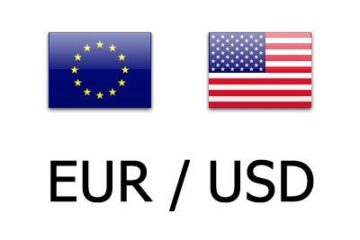The company allows small businesses to communicate with their current and potential customers, which is also a benefit for its advertising revenue.
On December 1, 2021, the first case of the Covid-19 omicron variant was discovered in the United States.
One month later, at the start of the New Year, omicron accounted for 95% of the nation’s Covid cases.
Struggling Through Pandemic
Seventy-one percent of the respondents to a Goldman Sachs survey released in early this year said the rise omicron variant hurt their revenue while 37% said their businesses were forced to temporarily close or scale back operations.
And now the BA.2 sub-variant, which spreads 80% faster than the earlier omicron, has more than doubled in the U.S. and is on its way to becoming the dominant variant.
Amid all this comes the Global State of Small Business Report from Meta Platforms (FB) – Get Meta Platforms Inc. Class A Report, a survey conducted in January when many parts of the world saw a surge in Covid cases due to the omicron variant.
The Facebook parent said that one in five small businesses reported being closed, up from an earlier survey in July.
“Small businesses all over the world have struggled throughout the pandemic,” the report said. “But when Meta surveyed thousands of them globally last year there were signs that recovery was underway.”
Will Meta Revenue Be Affected?
Then the Omicron wave came, the study said, “hitting sales and supply chains and causing many to close their doors once again.”
Facebook, known now as Meta Platforms, offers opportunities to small businesses to market their digital marketing efforts. To attract them because they are an important part of its advertising revenue, Facebook has different features, functions and offerings.
“More than 200 million businesses use our apps every month to create virtual storefronts and reach customers,” Meta said. “Millions have used our tools to help them make the transition online since the start of the pandemic. Whatever challenges and opportunities they will face in 2022 and beyond, Meta will continue to do all we can to help them find success online.”
The group competes with Twitter (TWTR) – Get Twitter, Inc. Report, TikTok, Google (GOOGL) – Get Alphabet Inc. Class A Report and others who offer marketing tools to small businesses to enable them to capture a new audience, capture and adapt to new trends and reach other audiences.
When they encounter difficulties, companies in general tend to reduce their marketing budget, which is likely to affect Facebook’s revenue.
This bad news for Facebook’s revenue comes on top of other bad news.
Early February, Facebook warned that changes to Apple’s (AAPL) – Get Apple Inc. Report privacy controls will cost the social media company $10 billion in 2022.
The new survey covers nearly 24,000 small and medium-sized business leaders across 30 countries and territories.
North America saw the largest increase in closure rates, rising seven percentage points to 21%.
The Middle East and North Africa, South Asia and Sub-Saharan Africa regions continue to have the highest closure rates, although they have remained stable, the report said.
“Our small business surveys have consistently found that women and minority-led businesses have been hit the hardest during the pandemic,” the report said. “That remained sadly true during the Omicron wave.”
In the US, both categories saw a 6% increase in closures – to 25% for women-led businesses and 26% for those led by minorities.
Black-owned businesses also posted a drop in sales with just over half down on last year, compared with 36% of other US small businesses.
Finding Success Online
This contrasted with the overall picture globally, the report said.
“For more than half of businesses that remained open,” the report said, “sales were up on the same time last year – the first time a majority of businesses reported improved sales since our surveys began in May 2020.”
Overall, businesses globally were less concerned about issues with demand and cash flow than they were last summer.
Employment remained stable despite increased closure rates.
Roughly 11% of businesses reported that employment had increased, the same percentage as in July 2021, with large gains in East Asia and the Pacific, South Asia, and Sub-Saharan Africa.
The report found that many businesses are finding success online.
A quarter of the businesses surveyed said they were currently digital-only.
Four in every five businesses said they had used digital tools in the last 30 days, while more than a third of small businesses that made at least 50% of their sales digitally also reported improved sales overall.


